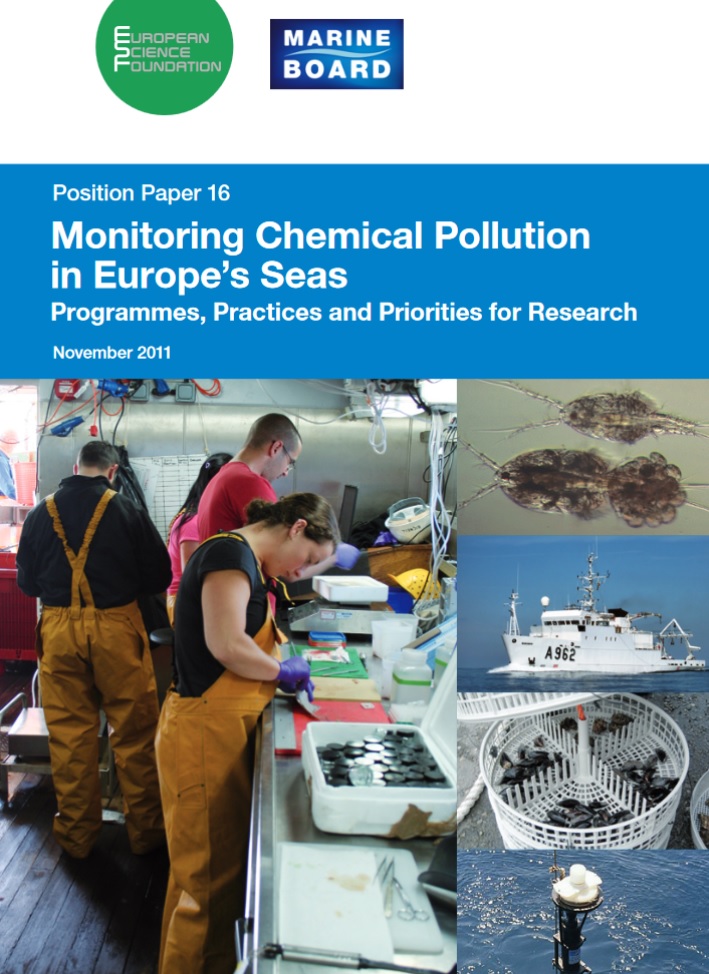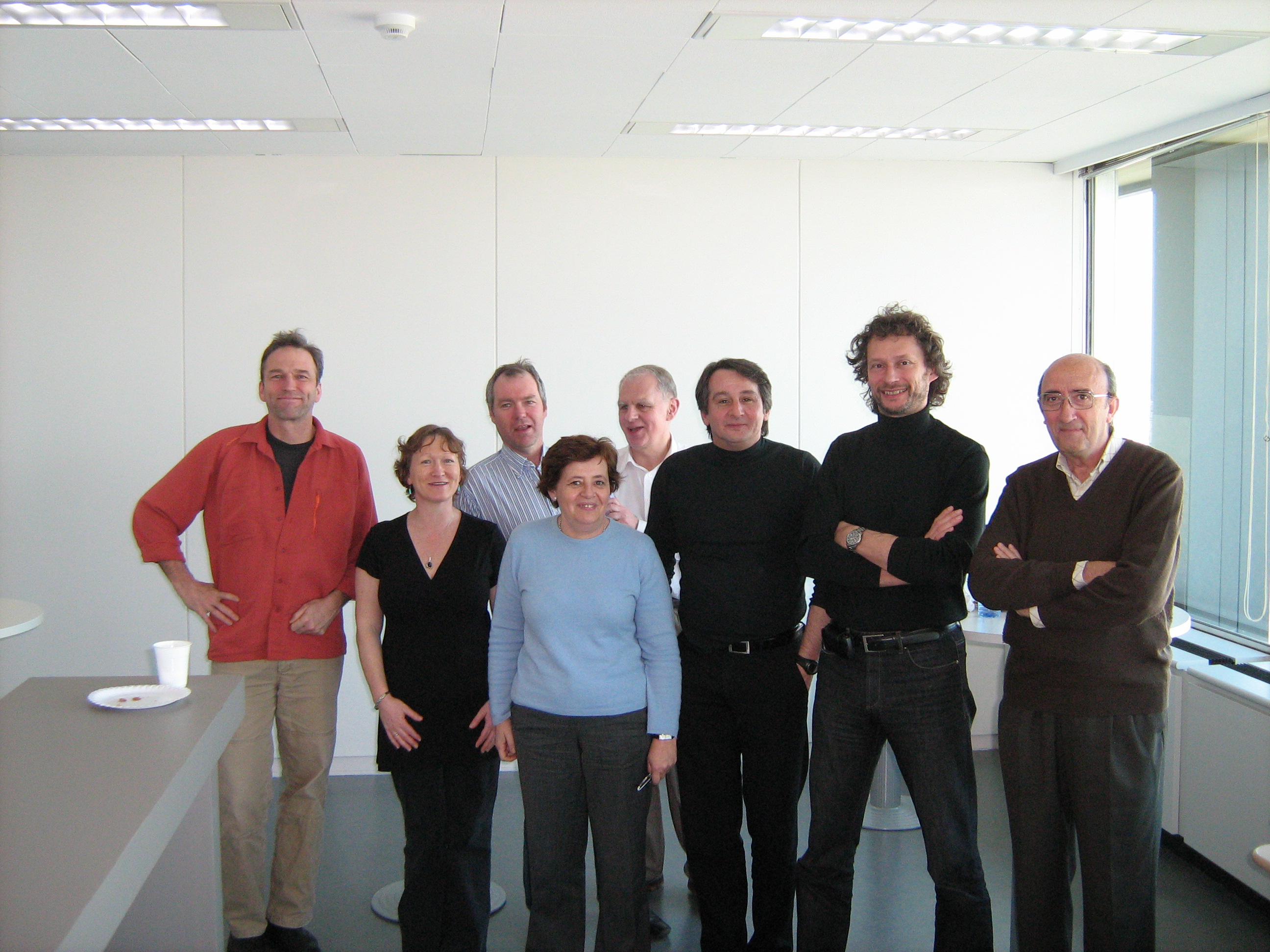Output
P osition Paper 16, Monitoring chemical pollution in Europe's Seas - programmes, practices and priorities for research (November 2011)
osition Paper 16, Monitoring chemical pollution in Europe's Seas - programmes, practices and priorities for research (November 2011)
Background
 About 30,000 of the chemicals currently on the EU market have a production volume higher than one tonne per year. Increasing numbers of these substances end up in rivers, estuaries and seas with potentially damaging effects on marine organisms, ecosystems and processes. Regulatory frameworks or large international monitoring programmes (e.g. OSPAR) may not always incorporate the most recent scientific developments and/or relevant scale in their assessment schemes to allow a (recent) science based evaluation of the risks posed by chemicals to marine and coastal systems.
About 30,000 of the chemicals currently on the EU market have a production volume higher than one tonne per year. Increasing numbers of these substances end up in rivers, estuaries and seas with potentially damaging effects on marine organisms, ecosystems and processes. Regulatory frameworks or large international monitoring programmes (e.g. OSPAR) may not always incorporate the most recent scientific developments and/or relevant scale in their assessment schemes to allow a (recent) science based evaluation of the risks posed by chemicals to marine and coastal systems.
A major shortcoming is that monitoring of chemicals is mostly limited to a list of existing chemicals measured by (most) international organizations, however, new and emerging chemicals which enter the marine environment are not routinely monitored and/or assessed. Furthermore, the potential risks of chemicals in the marine environment are mainly assessed through the use of (exclusively) chemical techniques (chemical concentrations in water, sediment and, in a few cases, biota) and as such the true impact of these substances cannot be evaluated.
From this it follows that there is a clear need to evaluate the importance and relevance of the substances presently being (chemically) monitored; identify the need to initiate monitoring of new and emerging substances which have been shown to enter marine environments and to apply state of the art environmental risk assessment procedures (combining exposure and effect assessment) to evaluate the impact of the substances on the different compartments in coastal and open sea systems.
Objectives
- Review the relevance and need to monitor and assess the substances currently being monitored and/or assessed in the marine environment;
- Review recent literature to ascertain which new and emerging chemicals should be incorporated in existing and future monitoring and assessment schemes;
- Review existing methods used to evaluate the impact/risks of chemicals in marine systems and based, on recent scientific knowledge
- Summarize results of the above tasks in a Position Paper including recommendations for improved procedures and future Research and Development (R&D) needs.
Meetings
- 28–29 January 2008, ESF-COST Office, Brussels, Belgium
- 5–6 June 2008, Marine Board Secretariat, Ostend, Belgium
- 30–31 March 2009, ESF-COST Office, Brussels, Belgium
- 14–15 December 2009, Research Council of Norway, Oslo, Norway
Members
Co-Chair: Colin Janssen, Ghent University, Belgium
Co-Chair: Patrick Roose, Management Unit of the North Sea Mathematical Models and the Scheldt Estuary (MUMM), Belgium
Working Group members:
Joan Albaiges, Spanish National Research Council (CSIC), Spain
Maria João Bebianno, University of Algarve, Portugal
Kees Camphuysen, Royal Netherlands Institute for Sea Research (NIOZ), Netherlands
Margot Cronin, Marine Institute, Ireland
Jan de Leeuw, Royal Netherlands Institute for Sea Research (NIOZ), Netherlands
Geir Wing Gabrielsen, Norwegian Polar Institute, Norway
Tom Huchinson, Plymouth Marine Laboratory, United Kingdom
Ketil Hylland, University of Oslo, Norway
Bo Jansson, Stockholm University, Sweden
Munro Bjørn Jenssen, Norwegian University of Science and Technology (NTNU), Norway
Detlef Schulz-Bull, Baltic Sea Research Institute-Warnemuende, Germany
Piotr Szefer, Medical Univerisity of Gdansk, Poland
Contact at European Marine Board Secretariat: Email